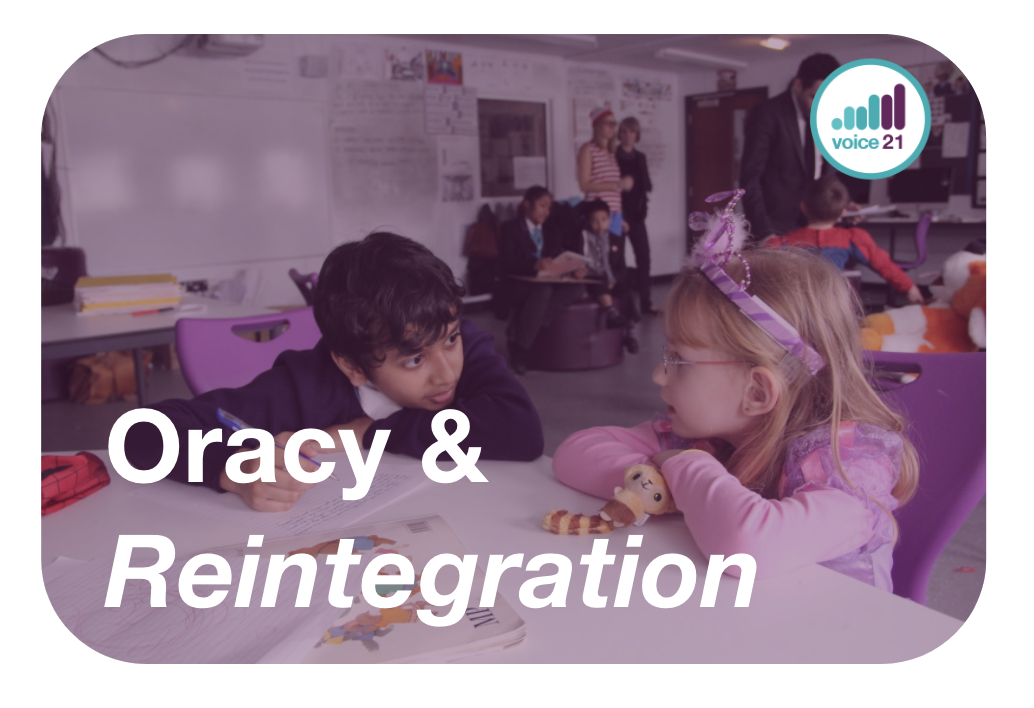Amy Gaunt, our Director of Learning and Development, reflects on the vital role that oracy can play as students return to school

It is no exaggeration to say that the past academic year is one of the toughest schools have ever faced. And, as we enter the Autumn term, in addition to the nervous excitement that comes with anticipating any new academic year, there are also new concerns about students’ welfare, missed learning and the challenge to catch up in the year ahead.
For many students, their first day back in September will be the first time they have set foot in school for nearly half a year. Since they were last at school some students will have lost a loved one, others will have experienced anxiety or other mental health difficulties. All have faced significant disruption to their learning and routine. It is in this context that teachers and school leaders have been deciding how to reintegrate students effectively back into school, considering the impact this period has had both on their learning and wellbeing.
The Chartered College of Teaching’s report on the impact of school closures highlights the importance of ‘helping children reestablish social relationships and make connections with others […to support] their wellbeing by promoting stability and recovery,’ emphasising the importance of promoting ‘interaction between students in the form of supportive partner work, team projects and class discussions […] after long periods of social distancing’. Our own research into oracy has found that a focus on talk in the classroom can lead to improved confidence and self-esteem in pupils.
Oracy, the ability to articulate ideas, develop understanding and engage with others through spoken language, should therefore be at the heart of your school’s approach to reintegrating students in September. In this unsettling context, it is crucial that students have opportunities to express themselves, articulate their thoughts and feelings, and feel heard.
Whilst many schools have extremely effectively moved many aspects of their provision online, the dialogic interactions that nurture students’ curiosity and stimulate and extend their thinking have been harder to replicate in the ‘virtual classroom’. Indeed, for many students, it is the opportunity to discuss, debate and collaborate with others that they missed most about school at the end of last year.
A renewed focus on oracy in the classroom from September will foster student motivation, ensuring the new term is an enjoyable one in which collaboration and social interaction are prioritised, enabling students to practice the skills they may have used less over lockdown. Setting out the expectations and norms for productive classroom talk with students is a way of reestablishing important routines and structures around learning. What’s more, purposeful classroom talk is an effective and efficient way to identify gaps in students’ learning across the curriculum.
Creating plenty of opportunities for students to learn through talk can also promote improved academic outcomes. The EEF’s evaluation of oral language interventions found that participating students made five months additional progress over a year. Oracy therefore provides a way for schools to both strengthen student wellbeing and address the well-documented ‘learning loss’ that many students have experienced over the past few months.
For disadvantaged students who, over the course of the lockdown are already predicted to have fallen further behind their more advantaged peers in terms of attainment, it is even more crucial. As Neil Mercer explains, school is the second chance for many students to have a rich language experience: ‘if these children are not getting it in school, they are not getting it.’ Given the link between a child’s ability to use spoken language and his or her level of educational attainment, as well as the sobering statistic that young people with poor communication skills are one and half times more likely to have mental health difficulties, a focus on oracy in the current climate is not just a nice-to-have but rather a moral imperative.
Is oracy a priority in your school this year? Discover how you can become a Voice 21 Oracy School or get in touch with us at [email protected]
© 2022 Voice 21. Voice 21 is a registered charity in England and Wales. Charity number 1152672 | Company no. 08165798